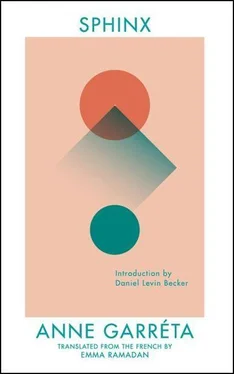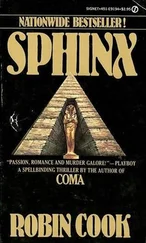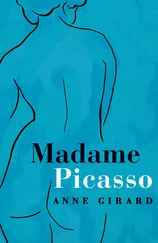Anne Garreta - Sphinx
Здесь есть возможность читать онлайн «Anne Garreta - Sphinx» весь текст электронной книги совершенно бесплатно (целиком полную версию без сокращений). В некоторых случаях можно слушать аудио, скачать через торрент в формате fb2 и присутствует краткое содержание. Год выпуска: 2015, Издательство: Deep Vellum Publishing, Жанр: Современная проза, на английском языке. Описание произведения, (предисловие) а так же отзывы посетителей доступны на портале библиотеки ЛибКат.
- Название:Sphinx
- Автор:
- Издательство:Deep Vellum Publishing
- Жанр:
- Год:2015
- ISBN:нет данных
- Рейтинг книги:3 / 5. Голосов: 1
-
Избранное:Добавить в избранное
- Отзывы:
-
Ваша оценка:
- 60
- 1
- 2
- 3
- 4
- 5
Sphinx: краткое содержание, описание и аннотация
Предлагаем к чтению аннотацию, описание, краткое содержание или предисловие (зависит от того, что написал сам автор книги «Sphinx»). Если вы не нашли необходимую информацию о книге — напишите в комментариях, мы постараемся отыскать её.
is a remarkable linguistic feat and paragon of experimental literature that has never been accomplished before or since in the strictly-gendered French language.
Anne Garréta
Pas un jour Emma Ramadan
Monospace
Sphinx — читать онлайн бесплатно полную книгу (весь текст) целиком
Ниже представлен текст книги, разбитый по страницам. Система сохранения места последней прочитанной страницы, позволяет с удобством читать онлайн бесплатно книгу «Sphinx», без необходимости каждый раз заново искать на чём Вы остановились. Поставьте закладку, и сможете в любой момент перейти на страницу, на которой закончили чтение.
Интервал:
Закладка:
I appear to myself in the guise of the hero of that 1950s novel entitled, for reasons I no longer remember, La Chute. A pure soul, all grandeur in a heroic mask, suffering and cheaply acting out the sublime in a chaotic confusion of good intentions and pious lucidities. However, something of my true self remained: the intimate sensation I derived from these passions, soon shattered by the aftertaste of falling out of love.
The strange sensation of always feeling as if I were at the dreadful edge of some imminent break…This sentiment is the very foundation of all that is intractable in me: a sort of inebriation, bitter from drawn-out solitude, the inevitable tendency toward a final disenchantment with all idylls. And I can’t explain why, or how. I’ve never expected much from those I love. I would have given all, conceded all, pardoned all the wandering of anyone who accorded me the space and time for my discreet tenderness. So much did I fear smothering those I cherished that I never made a fuss, which was doubtless the reason for my repeated falls and defeats. I carry my silence — this constant withdrawal into a suffering that I thought of perhaps mistakenly as immoderate and obscene — as a cross that has never promised any redemption, a calvary without deliverance, an involuntary sacrifice made in vain.
Was I incorrigible to always lock away my grievances, wishing my partner would do the same? In silence I endured all transgressions, from the most trivial to the most serious (and my partner never understood which were the most serious for me, accumulating them innocently and obviously, but hiding those betrayals that didn’t matter to me at all: this burglary of the truth, more than the fault concealed, was what made me suffer). And because of my attention to decorum and my fear of a vulgar lover’s tiff, I never dared to counter this extreme violence with anything of the same order. I deployed an irony that harmed only me, opening more fully the wound it was attempting to bandage.
My obsessive fear of this imminent fall was always hovering over me. How often did I imagine myself gripped with terror, collapsing, tumbling from the height of the relative safety of whatever promontory I had been occupying? A fall brought about by a purely internal and continually foreseen rending, imminently suspended on a final thread that never broke but which, taut and twisted unbearably, never ceased to tremble. The agonizing tension of always being about to crack without ever feeling the relief of chaos — for I denied myself even the obscene plenitude of annihilation.
In those moments when it seemed the dreaded, desired fall was drawing close, I don’t know if I fled. At the least I retreated from its too-pressing arrival, as far as possible from whatever was seeming to provoke it. Somehow, I escaped. Probably through desertion, an abdication that threw me back into its core: an indissoluble knot of lonely meditation and troubled absence (I often imaged asceticism as being trapped inside a bedroom in a foreign town: New York, somewhere relatively high up, a decaying skyscraper in a pool of ruins, shaken from its foundations by the rhythm of African American voices: a syncopated version of Stendhal syndrome). By distancing myself from the world, I was squandering my destiny: such was the malediction of recognizing the world’s infamy but not allowing myself to spit in its face.
The passion of my inner secret cohabited violently with the constant exhibitionism demanded of a social life, and I was unable to escape from it, to defend myself against it, or to decline its imperative invitation. My mind was too supervised and civilized for this world that had become savage, imprinted with savoir-vivre, with a restraint that has become outdated but that remains the sole condition of civility. A drama was playing out and I was the battlefield. Who has resisted the temptation, the contempt evoked by this old Europe recalling the nostalgic charm of naphthalene? With a pure soul and the face of a martyr, I jeered at it, and yet I wasn’t composed of anything better. The whole dialectic of Reason, the confused potage of the True, the Good, and the Beautiful was suddenly overthrown, tossed into the impetuous cloacum of a world that breaks through old barriers and overflows its first cradle, twisting and restless with tumults and tremblings provoked by these unseen, submarine restraints.
Moments, fragments come back to me. One morning at the Kormoran, the sight of A*** brought tears to my eyes: I was imagining this body, lost, dead, vanished. I used to love watching it move, hips and back swaying in rhythm. The memory of sweat on that body after…after what? I was watching A*** dance from within a profound paralysis, an intense solitude, letting myself be invaded by every movement, feeling the tension of this immaterial thread that linked us even from a distance. Then a sudden invasion of anguish — looking at this body and knowing it to be ephemeral.
In the end what I loved above all else: those hips, narrow and broad at the same time, those legs that I never knew how to describe except, mundanely, as slim and long. But it wasn’t this that made them desirable to me — when we made love, I couldn’t stop caressing them, my lips against the inner thighs — it was something else, always something else, this indefinable something else where desire hides itself. Perhaps I was enticed by the slow motion of the dance, before my eyes, sublimely taking the body out of its rhythm.
Ephemeral, this body was undeniably ephemeral. I was overwhelmed by despair, vague and distant; I barely discerned the cause, buried as it must have been in ancient memory, abruptly rekindled and fighting to return, to take hold and actualize itself in a vision. Ephemeral — a word that I heard pronounced as a murder, as an image before my eyes, floating, tearing the veil; a living and funereal abrasion coming to break on the surface of anamnesis.
I had hoped that at least this hour of tragedy would provide me with a confidant, some faithful shadow attached to all that I was not able to bring into the light. What I had wanted to bury came back to me; there is no way to assassinate the cadaver I have been carrying in me for eternity, no way to dull the acidic decomposition that gnaws at me, torturing my flesh every time I find myself falling in love. I constructed each love too much in my own image. Did I want to collide against the jagged edges of suffering, to touch the infinitely collapsible floor of hell? And wasn’t hell itself merely a pretext, in its essence ultimately denied?
“All the torments of romantic passion,” I would say to myself sometimes, ironically. It was the repetition of the same torments that astonished me in particular. Seasons blended together: summer, autumn, winter, I never had any notion of time. My passion always seemed to be solitary or, rather, disconnected, unintelligible to myself or to others. Even Christ had not been alone; at least he had suffered in company, alongside two thieves. It was not that I had chosen solitude. In fact I suffered from it, but even the idea of passion seemed ridiculous and outdated, like something profoundly external, coming from an outside that was inaccessible to me, out of my reach.
Always failing, impaling myself on this fulcrum between speaking and keeping quiet, a knot was forming that I couldn’t undo, little by little strangling my voice, cutting it off in a silence haunted by powerlessness. Rereading Stendhal and Flaubert at the time, their words, coursing through me, opened up a chasm in which my devastating powerlessness devoured me even more violently. Trying to forget through reading, I ended up forgetting everything, even reaching a state of self-oblivion, which alone is able to appease suffering: a blackout in the broken dream of this narrative. The only thing that managed to subsist in my eyes — lost and blind to everything else — was a dispossession that seized, embraced, and then released, without any more substance or intelligibility than that. It was an impossible task to set the boundaries of what I was, up to the edge where I blurred into the other — the indescribable other — so much did the meanings escape me, the words that others before me had uttered deep within an analogous attrition. I longed to reduce the impossible to the inessential, but I no longer had recourse to this principle of logic, which had suddenly become inadequate.
Читать дальшеИнтервал:
Закладка:
Похожие книги на «Sphinx»
Представляем Вашему вниманию похожие книги на «Sphinx» списком для выбора. Мы отобрали схожую по названию и смыслу литературу в надежде предоставить читателям больше вариантов отыскать новые, интересные, ещё непрочитанные произведения.
Обсуждение, отзывы о книге «Sphinx» и просто собственные мнения читателей. Оставьте ваши комментарии, напишите, что Вы думаете о произведении, его смысле или главных героях. Укажите что конкретно понравилось, а что нет, и почему Вы так считаете.












